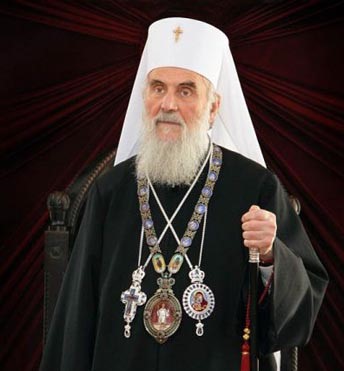Patriarch Irinej of Serbia tried to keep up appearances regarding Serbian Orthodox Church seeming closer to the Church of Russia due to their common Slavic roots, by explaining his attitude against the recognition of the Ukrainian Autocephalous Church.
“I must emphasize that our Church did not make this choice because of our Slavic proximity to the Church of Russia and certainly not for political or other interests, but by reference to the Church tradition and the Canon law…” the Serbian Patriarch told “Politika” newspaper of Belgrade. He also said that “If any other local Church, the Russian, or anyone else did something alike, we would have reacted similarly.”
“We love Greeks but we don’t yield”
In an attempt to maintain balance with the Greek Orthodox Church, the Serbian Patriarch did not fail to mention the special relations of Greece, Constantinople and Serbia, which, however, are not enough for him to change his mind, as it is pointed in an article in orthodoxia.info.
“Many of our bishops have been spiritually cultivated in Greece, in Greek theology and culture. I feel compelled and I insist on feeling deeply grateful to the Mother Church and the Holy Throne of the Patriarchs of Constantinople. I and my fellow bishops share our love for the Greek people, their Church and their culture,” said Patriarch Irinej. He also added, “This love, however, does not give me or our other bishops the right not to point out anticanonical and unacceptable acts that have been also pointed out by some Greek clergy and theologians.”
“With an Eye to Ohrid and Montenegro”
Despite the Serbian Patriarch’s attempt to disconnect his Church’s stance from political and similar interests and to portray it as purely ecclesiastical, some political and ecclesiastical analysts believe that Patriarch Irinej’s choice to oppose openly the Ecumenical Patriarchate’s actions is closely related both with the creation of an Autocephalus Archdiocese of Ohrid, based in Skopje, and with the existence of several voices within Montenegro who also believe that the time has come for their own Autocephaly.
Both issues are considered extremely strategic for the Serbian Orthodox Church, while many of its bishops believe that by accepting the new Ukrainian ecclesiastical reality this would imply the opening of a “backdoor” for their own Church.
